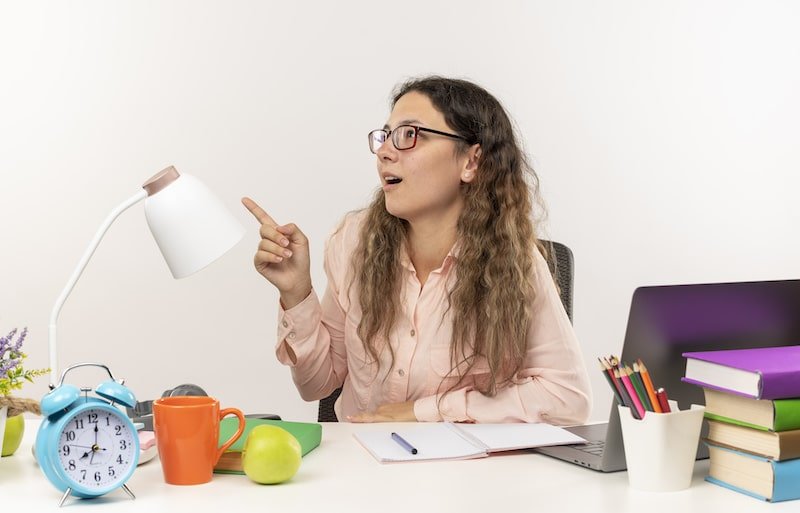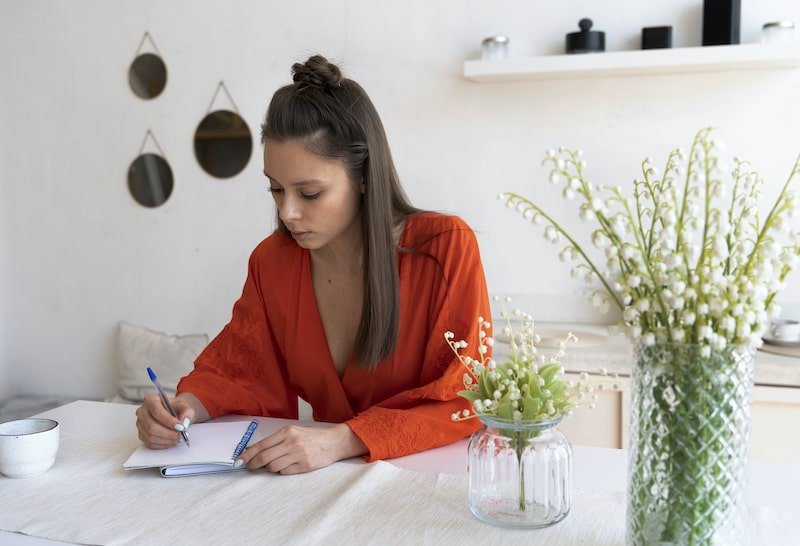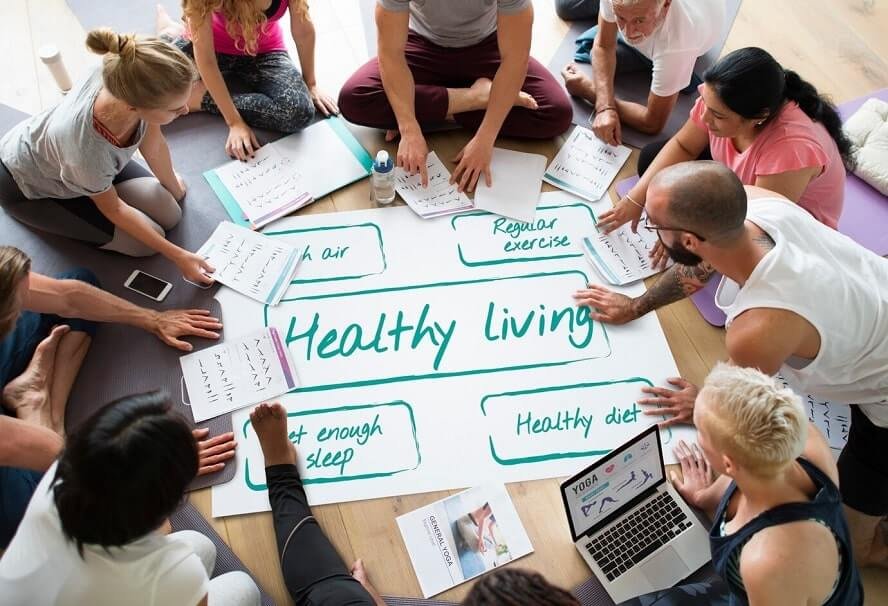
Have you ever walked into your home after a long day and felt overwhelmed by the sheer amount of stuff everywhere? You’re not alone. Many of us struggle with clutter, and it can have a surprisingly negative impact on our mental well-being. In this article, we’ll explore the connection between decluttering and stress, and we’ll guide you through a practical process to declutter your home and create a more peaceful environment.
Introduction: The Clutter-Stress Connection
Imagine this: You’ve had a long day at work, and you’re looking forward to relaxing at home. But as you step inside, you’re greeted by a mountain of paperwork on the kitchen counter, clothes piled on the floor, and toys scattered across the living room. Instead of feeling calm and relaxed, you feel a surge of anxiety and overwhelm. This feeling isn’t just a coincidence. Clutter can significantly contribute to stress and anxiety.
Clutter isn’t just about a messy home; it’s about a cluttered mind. When we’re surrounded by things we don’t need or use, our brains struggle to process information and focus. This can lead to feelings of overwhelm, irritability, and difficulty concentrating.
The good news is that decluttering can be a powerful tool for stress reduction. By clearing out unnecessary items and organizing what we keep, we create a more peaceful and efficient environment. This can lead to a calmer mind, increased productivity, and a greater sense of well-being.
Section 1: Understanding Clutter
Before we dive into the decluttering process, let’s define what clutter really is.
Definition of Clutter
Clutter is anything that we don’t need, use, or love. It’s the accumulation of things that take up space, both physical and mental, without adding value to our lives. Think of it as anything that’s unnecessary, unwanted, or simply taking up space that could be better utilized.
Types of Clutter
Clutter comes in many forms, not just the piles of clothes and papers we see around our homes. Here are three main categories:
- Physical Clutter: This is the most obvious type of clutter—the piles of books, the overflowing drawers, the stacks of magazines, and the random collection of things that seem to multiply overnight.
- Digital Clutter: Just like our physical spaces, our digital devices can also become cluttered. Think of all those unread emails, unused apps, and overflowing online storage.
- Emotional Clutter: This type of clutter is less tangible but can be just as impactful. It’s the accumulation of unresolved emotions, negative thoughts, and past experiences that weigh us down.
Impact of Clutter on Stress
Studies have shown a strong link between clutter and increased stress levels. Clutter creates a sense of chaos and disorder, which can trigger the body’s stress response. This can lead to:
- Increased cortisol levels: This stress hormone can lead to anxiety, sleep problems, and weight gain.
- Difficulty concentrating: Clutter makes it harder to focus and complete tasks.
- Feelings of overwhelm: Being surrounded by clutter can create a sense of being overwhelmed and out of control.
Recognizing the impact of clutter on our mental and physical health is the first step towards making a change.
Section 2: The Psychological Benefits of Decluttering
Now that we understand the negative effects of clutter, let’s explore the positive benefits of decluttering.
Mental Clarity
A tidy space can lead to a clearer mind. When we declutter, we create a sense of order and control. This can help to reduce the mental clutter that often contributes to stress and anxiety. Imagine walking into a clean, organized room. You feel a sense of calm and peace, and your mind feels less cluttered.
Increased Productivity
Decluttering can enhance focus and efficiency. When your workspace or home is organized, it’s easier to find what you need, and your mind isn’t distracted by unnecessary items. This can help you to focus on your tasks and get things done more effectively.
Emotional Well-being
Decluttering can have a profound impact on your emotional well-being. By letting go of possessions that no longer serve you, you create space for new experiences and opportunities. This can lead to feelings of lightness, freedom, and a sense of accomplishment.
Section 3: Steps to Declutter Your Home
Now that you’re convinced of the benefits, let’s get practical and learn how to declutter your home.
Step 1: Set Clear Goals
Before you start decluttering, it’s essential to set clear goals. This will help you stay focused and motivated.
- Define what you want to achieve: Do you want to create a more peaceful environment? Do you want to free up space for new activities?
- Prioritize areas that cause the most stress: If you’re feeling overwhelmed by clutter, start with the areas that cause you the most stress. This could be your kitchen counter, your bedroom closet, or your home office.
Step 2: Start Small
Don’t try to tackle everything at once. Instead, start with a small area. This could be a single drawer, a shelf, or even just a corner of a room.
- Choose a manageable space: Starting small allows you to see results quickly, which can motivate you to continue decluttering.
- Celebrate small victories: Acknowledge your progress along the way. Each drawer you declutter, each shelf you organize, is a step towards a more peaceful home.
Step 3: Sort and Categorize
Once you’ve chosen an area to declutter, it’s time to sort through your belongings.
- Create three piles: Keep, donate, and discard.
- The four-box method: This method can make decision-making easier. Create four boxes labeled “Keep,” “Donate,” “Discard,” and “Maybe.” As you go through your items, place them in the appropriate box. If you’re unsure about an item, put it in the “Maybe” box. You can revisit this box later and make a final decision.
Step 4: Organize and Store
Once you’ve sorted your belongings, it’s time to organize and store the items you’re keeping.
- Effective storage solutions: Consider using bins, shelves, drawers, and other organizers to keep your belongings tidy and accessible.
- Utilize vertical space: Maximize your storage space by using shelves and vertical organizers.
- Invest in organizers: There are many innovative organizers available to help you store everything from clothes to kitchen utensils.
Section 5: Maintaining a Decluttered Home
Decluttering is not a one-time event. To maintain a clutter-free home, you need to develop habits and strategies to prevent clutter from accumulating again.
Developing Decluttering Habits
- Incorporate decluttering into your daily routine: Set aside a few minutes each day to declutter. This could be as simple as putting away items you’ve used, sorting through mail, or cleaning out a drawer.
- Set reminders: Use your phone’s calendar or a sticky note to remind yourself to declutter.
Preventing Clutter Relapse
- Strategies to avoid accumulating new clutter: Before you buy anything new, ask yourself if you really need it. Think about the last time you used a similar item, and if you haven’t used it recently, you probably don’t need another one.
- Implement a “one-in, one-out” rule: For every new item you bring into your home, discard an old one. This will help to prevent clutter from accumulating over time.
Conclusion: The Transformative Power of Decluttering
Decluttering is not just about getting rid of stuff; it’s about creating a more peaceful and fulfilling life. By taking the time to declutter your home, you’re investing in your mental and emotional well-being.
- Recap of Key Points: We’ve discussed the importance of decluttering, the different types of clutter, the psychological benefits of a decluttered home, and practical steps to declutter your space.
- Start decluttering today! Choose one small area to start with, and remember to celebrate your progress. You’ll be amazed at how much better you feel when your home is clutter-free.
- Final Thoughts: Decluttering is a journey, not a destination. It’s a continuous process of letting go of what no longer serves us and creating a space that reflects our values and priorities. The transformative power of a decluttered home extends far beyond the physical space. It can create a sense of calm, clarity, and freedom that allows us to live more fully and meaningfully.






